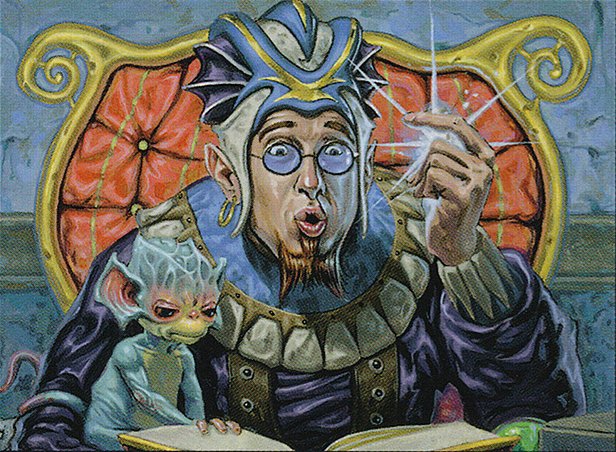If you sit down to a home game of 5E D&D and ask the GM what house rules, if any, they have what would you expect to hear? Changing how attack rolls work? No, not really. Changing how the proficiency bonus works? Surely not. Replacing Vancian spellcasting with something else? Maybe.
Some areas of 5E mechanics seem ripe for homebrewed rules. Initiative, Critical Hits, Critical Fumbles, and Inspiration are all common targets for the 5E homebrewer. However, if there’s one mechanic that I see homebrewed more than any other it’s probably inspiration. It is as if D&D players were unsatisfied with inspiration yet still felt it should be part of the game.
I speculate that GMs readily homebrew inspiration for two reasons. First, it is not a core mechanic of 5E which makes it easy to change without disrupting other parts of the system. Second, it is inherently unsatisfying because it offers a mechanical benefit as a reward for the GM’s subjective evaluation of roleplay performance. More on both these points below.
Before we dive in, I’m going to tip my hand and tell you the way I run inspiration. I run inspiration for a narrative benefit, not a mechanical one. I offer inspiration to a player in exchange for accepting story-related complications. Players can spend inspiration to add aspects to the game world. This approach supports the kind of collaborative narrative I try to promote at my table. I do not claim my approach is best or that you should copy it. But I would encourage you to think about why you might homebrew inspiration. If you’d like to tell me how you use inspiration at your table, please find me on Mastodon @[email protected]
Rules as written
The rules for inspiration don’t take up much space so I’ll quote them here in full. The rules cover what it is, how players earn it, and how players spend it.
Here is how inspiration is defined on pages 59 and 60 of the SRD 5.1
Inspiration
Inspiration is a rule the game master can use to reward you for playing your character in a way that’s true to his or her personality traits, ideal, bond, and flaw. By using inspiration, you can draw on your personality trait of compassion for the downtrodden to give you an edge in negotiating with the Beggar Prince. Or inspiration can let you call on your bond to the defense of your home village to push past the effect of a spell that has been laid on you.
Gaining Inspiration
Your GM can choose to give you inspiration for a variety of reasons. Typically, GMs award it when you play out your personality traits, give in to the drawbacks presented by a flaw or bond, and otherwise portray your character in a compelling way. Your GM will tell you how you can earn inspiration in the game.
You either have inspiration or you don’t—you can’t stockpile multiple “inspirations” for later use.
Using Inspiration
If you have inspiration, you can expend it when you make an attack roll, saving throw, or ability check. Spending your inspiration gives you advantage on that roll.
Additionally, if you have inspiration, you can reward another player for good roleplaying, clever thinking, or simply doing something exciting in the game. When another player character does something that really contributes to the story in a fun and interesting way, you can give up your inspiration to give that character inspiration.
System Reference Document 5.1 (CC-BY-4.0)
Hey! I forgot that last bit about giving your inspiration to another player if that player roleplays particularly well. But shouldn’t the GM just award your party member fresh inspiration for good roleplaying?
It’s not a core mechanic
The SRD 5.1 doesn’t reference inspiration elsewhere except in the Advantage and Disadvantage section where it reiterates inspiration is a way to gain advantage. If we ask ourselves why inspiration is so easy to replace, here’s our answer. Inspiration does not integrate into other parts of 5E. An example of integration would be certain features becoming active while a character has inspiration.
Inspiration not being core to the 5E system isn’t enough to explain why inspiration so frequently gets the homebrew treatment. For example, falling damage (1d6 for every 10 feet fallen up to a maximum of 20d6) doesn’t come up except when, duh, falling. It’s not core to the game, but we don’t often see falling damage changed. In fact, we might think twice about joining a game if the GM said they changed falling damage to account for acceleration!
Inspiration is easy to change, but it’d be even easier just to drop it. So why do we put effort into fixing it? The simplest explanation may be inertia. I.E., inspiration exists in the rules, we find it unsatisfying, and rather than remove it we change it to suit us. However, I suspect there is something narratively satisfying about our players mustering a flash of good fortune in dire circumstances.
Is inspiration inherently dissatisfying?
Should players who love to speak in character and always consider their backstories when making decisions have advantage on every roll? The rules we quoted above say maybe they should. However, our gut says no. Why?
First, I would offer that inspiration feels appropriate when the conditions that bring it about are largely out of player control. That way inspiration can seem to strike a character as inspiration strikes us in our day-to-day. Under the 5E D&D rules, the player does something–act in character–and the GM decides if that player deserves inspiration. This dynamic feels more like GM caprice than inspiration.
Second, I would offer that inspiration feels appropriate when the conditions that bring it about match the benefits it confers. If I told you a GM was inspired to run an adventure set in the Feywild after seeing a production of A Midsummer Night’s Dream that would make sense. However, if I told you a GM was inspired to pursue long distance cycling after seeing the same play, you might rightly ask what one has to do with the other. The result matches the condition in the first instance and doesn’t in the second.
Appropriateness is inherently satisfying. Regarding 5E D&D inspiration, the mental distance between conditions and results is too great to feel appropriate.
What conditions should lead to what benefit?
Many replacement inspiration systems, including WotC’s own proposed system, meet the standard of appropriateness that I offered above. The systems I’ll touch on here award inspiration automatically, solving the problem of a subjective evaluation of player fidelity to character. When they are conditional, these systems grant mechanical benefits to players when mechanical conditions are met.
Kobold Press replaces inspiration with the Luck Point system in Black Flag Playtest Packet #2. The system automatically awards points to players when they fail rolls. Those points can be spent to improve future rolls. This system adds some extra accounting for players but gives players more control over the randomness of the d20. Mike Shea of Sly Flourish reports using it his Scarlet Citadel campaign and that his players seemed to enjoy the system.
Wizards’ proposed system for D&D 2024 from the Character Origins Playtest Packet awards inspiration mechanically. Characters are automatically granted inspiration by rolling a 20 on a d20 Test, no roleplaying required. As before, players spend inspiration to gain advantage on a roll. Inspiration also shows up a few more times in the background options of the packet.
I remember some community reactions at the time considered it gratuitous to reward a natural 20 with inspiration atop whatever success the roll achieved. Far more proper, they reasoned, to reward inspiration when a player rolls a 1. Either way, inspiration has the result of smoothing
Either Matt or Rob of the DM of None podcast (sorry, sometimes I have trouble telling your voices apart) reports that he automatically awards his players inspiration at the start each session. As in 5E D&D, players can spend inspiration to gain advantage on a roll. This approach sidesteps the entire business of subjectively awarding inspiration.
What can inspiration do for you?
If you feel unsatisfied with 5E D&D inspiration, ask yourself what you want it to do at your table.
Consider the inspiration paradigms we have discussed so far:
| Condition | Benefit | Example |
| Narrative | Mechanical | 2014 D&D |
| Mechanical | Mechanical | Tales of the Valiant, 2024 D&D? |
| None | Mechanical | Each player starts the session with inspiration (DM of None) |
These implementations of inspiration give players opportunities to smooth out the d20’s randomness. But what if you run your table in a way that makes failure as exciting as success? Your players might not use a smoothing mechanic because they’re having fun no matter what.
I propose considering another paradigm:
| Condition | Benefit | Example |
| Narrative | Narrative | ??? |
I use inspiration under this paradigm because I’m trying to promote a shared narrative at my table. The general idea is a player can accept my offer of inspiration in exchange for having the narrative turn against them in some way. For example, I may offer a player inspiration after they slay the leader of the masked bandits who preyed upon the town. If my player says okay, I’ll say that upon unmasking the leader, they realize it’s the character’s beloved younger brother. It’s a low point for sure, but it also drives character development.
My players spend inspiration to add aspects to the game world. For example, the party is trying to convince a duke that changelings have replaced his closest associates. A player spends inspiration to make the duke paranoid. The party plays off that paranoia and convinces the duke. I try to roll with the change to the NPC–or location, or faction, or whatever–just like I roll with my players doing something unexpected. I like giving my players influence in the game world beyond what the actions of their characters can achieve. I think doing so contributes to a shared narrative at my table, in fact, doing so makes it our table.
Next post I’m going to revisit my favorite (now forgotten?) non-D&D TTRPG from the waning days of TSR, Alternity! Referring back to our discussion of appropriateness in RPG mechanics, would Alternity have caught on if rolling high on a d20 hadn’t meant failure? Probably not. But catch me next time!
If you’d like to discuss inspiration and how you use it in your game, or if you have played Alternity, find me on Mastodon @[email protected]
Feature Image “Inspiration” by Matt Cavotta copyright 2001 Wizards of the Coast

